BMW X5 vs Porsche Cayman – Differences & prices compared
Compare performance, boot space, consumption and price in one view.
Find out now: which car is the better choice for you – BMW X5 or Porsche Cayman?
The BMW X5 (SUV) comes with a Plugin Hybrid, Petrol MHEV or Diesel MHEV engine and Automatic transmission. In comparison, the Porsche Cayman (Coupe) features a Petrol engine with Automatic transmission.
When it comes to boot capacity, the BMW X5 offers 650 L, while the Porsche Cayman provides 184 L – depending on how much space you need. If you’re looking for more power, decide whether the 625 HP of the BMW X5 or the 500 HP of the Porsche Cayman suits your needs better.
In terms of consumption, the values are 0.80 L per 100 km for the BMW X5, and 13 L for the Porsche Cayman.
Price-wise, the BMW X5 starts at 77100 £, while the Porsche Cayman is available from 136000 £. Compare all the details and find out which model fits your lifestyle best!
BMW X5
The BMW X5 embodies a perfect blend of luxury and performance, offering a driving experience that is both dynamic and comfortable. Its elegant design is complemented by a spacious, high-quality interior that prioritises driver and passenger comfort. Advanced technology features ensure that the X5 meets the demands of modern drivers, providing both entertainment and safety on the road.
details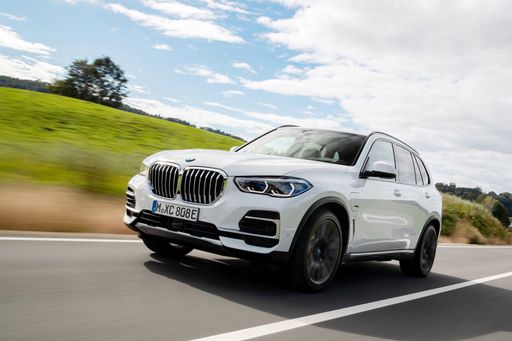 @ press.bmwgroup.com
@ press.bmwgroup.com
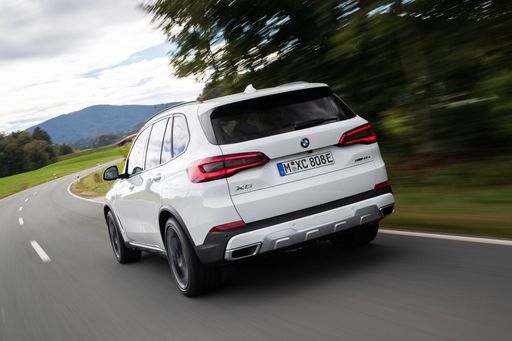 @ press.bmwgroup.com
@ press.bmwgroup.com
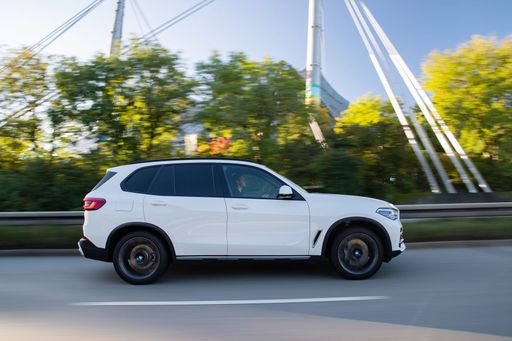 @ press.bmwgroup.com
@ press.bmwgroup.com
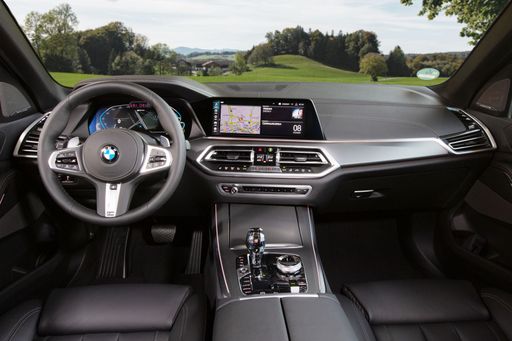 @ press.bmwgroup.com
@ press.bmwgroup.com
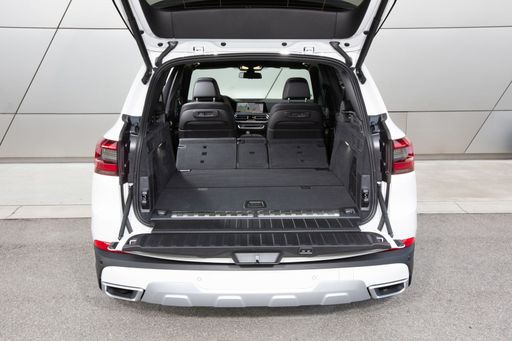 @ press.bmwgroup.com
@ press.bmwgroup.com
Porsche Cayman
The Porsche Cayman stands out as a quintessential sports car, blending sleek design with dynamic handling. Its mid-engine layout provides an excellent balance and sharp agility that driving enthusiasts crave. Inside, the Cayman offers a refined and driver-focused interior, ensuring that every journey is an exhilarating experience.
details

|
|
|
|
|
Costs and Consumption |
|
|---|---|
|
Price
77100 - 143500 £
|
Price
136000 £
|
|
Consumption L/100km
0.8 - 12.8 L
|
Consumption L/100km
13 L
|
|
Consumption kWh/100km
-
|
Consumption kWh/100km
-
|
|
Electric Range
105 km
|
Electric Range
-
|
|
Battery Capacity
25.70 kWh
|
Battery Capacity
-
|
|
co2
19 - 289 g/km
|
co2
295 g/km
|
|
Fuel tank capacity
69 - 83 L
|
Fuel tank capacity
54 L
|
Dimensions and Body |
|
|---|---|
|
Body Type
SUV
|
Body Type
Coupe
|
|
Seats
5
|
Seats
2
|
|
Doors
5
|
Doors
2
|
|
Curb weight
2240 - 2495 kg
|
Curb weight
1490 kg
|
|
Trunk capacity
500 - 650 L
|
Trunk capacity
184 L
|
|
Length
4935 - 4948 mm
|
Length
4456 mm
|
|
Width
2004 - 2015 mm
|
Width
1822 mm
|
|
Height
1755 - 1765 mm
|
Height
1267 mm
|
|
Max trunk capacity
1720 - 1870 L
|
Max trunk capacity
272 L
|
|
Payload
565 - 705 kg
|
Payload
281 kg
|
Engine and Performance |
|
|---|---|
|
Engine Type
Plugin Hybrid, Petrol MHEV, Diesel MHEV
|
Engine Type
Petrol
|
|
Transmission
Automatic
|
Transmission
Automatic
|
|
Transmission Detail
Automatic Gearbox
|
Transmission Detail
Dual-Clutch Automatic
|
|
Drive Type
All-Wheel Drive
|
Drive Type
Rear-Wheel Drive
|
|
Power HP
298 - 625 HP
|
Power HP
500 HP
|
|
Acceleration 0-100km/h
3.9 - 6.1 s
|
Acceleration 0-100km/h
3.40 s
|
|
Max Speed
233 - 250 km/h
|
Max Speed
315 km/h
|
|
Torque
540 - 750 Nm
|
Torque
450 Nm
|
|
Number of Cylinders
6 - 8
|
Number of Cylinders
6
|
|
Power kW
219 - 460 kW
|
Power kW
368 kW
|
|
Engine capacity
2993 - 4395 cm3
|
Engine capacity
3996 cm3
|
General |
|
|---|---|
|
Model Year
2023 - 2025
|
Model Year
2021
|
|
CO2 Efficiency Class
B, G
|
CO2 Efficiency Class
G
|
|
Brand
BMW
|
Brand
Porsche
|
BMW X5
The BMW X5: Setting the Benchmark for Performance and Luxury
As one of the pioneers in the luxury SUV segment, the BMW X5 continues to set new standards with its blend of performance, comfort, and cutting-edge technology. The latest iterations offer a range of powerful engines, advanced hybrid systems, and a suite of innovative features that cement its status as a premium choice for discerning drivers.
Engine Power and Hybrid Innovations
The BMW X5 is available with a choice of robust powertrains, including diesel, petrol, and plug-in hybrid options. The range-topping models showcase impressive power outputs, with the potent X5 M Competition boasting 625 PS. Meanwhile, the plug-in hybrid models, such as the xDrive50e, demonstrate BMW's commitment to sustainability by offering remarkable efficiency with an electric-only range of up to 97 km and a CO2 efficiency class of as low as 21 g/km.
Technological Advancements
The 2023-2024 BMW X5 integrates state-of-the-art technology to enhance the driving experience. The latest versions come equipped with a Steptronic Sport automatic transmission system, ensuring seamless gear shifts and optimal performance. The xDrive all-wheel-drive system guarantees superior traction and control, regardless of the driving conditions, making it perfect for both urban environments and off-road adventures.
Design and Dimensions
With sleek exterior dimensions, the BMW X5 exudes an aura of elegance and power. Measuring up to 4948 mm in length, 2004 mm in width, and up to 1765 mm in height, it presents a commanding road presence. Inside, the SUV offers ample space with a boot capacity ranging from 500 to 650 litres, ensuring that you have all the room needed for both everyday items and larger cargo.
Comfort and Interior Features
The X5's interior is a masterclass in luxury and functionality, designed to offer maximum comfort for all occupants. With seating for five, the cabin is crafted with the finest materials and hosts a range of technological features, including an advanced infotainment system and intuitive cockpit controls. The M Sportpaket configurations further enhance the vehicle's sporty pedigree with premium equipment and design details.
Performance and Handling
The BMW X5 demonstrates impressive dynamics, with acceleration from 0-100 km/h achievable in just 3.9 to 6.1 seconds, depending on the model. Its powerful engines and sport-tuned suspension provide exceptional agility and stability, making the X5 not only a comfortable cruiser but also a thrilling performer on twisty roads.
Economical Considerations
Despite its premium offerings, the BMW X5 is designed with efficiency in mind. Fuel consumption figures for the X5 range from 0.9 to 12.9 L/100 km across different powertrains, providing options for varying needs and driving styles. The monthly costs to run a BMW X5 range from €2070 to €3383, underlining its position as a luxury SUV option with significant value.
Conclusion
The BMW X5 remains a formidable contender in the luxury SUV market, thanks to its amalgamation of power, efficiency, and advanced technology. With a host of choices in terms of engine types and trim levels, there's an X5 to suit the preferences of any driver looking for excellence without compromise. It's not just a vehicle; it's a statement of refined performance.
Porsche Cayman
The Porsche Cayman: A Masterclass in Precision Engineering
For decades, Porsche has been synonymous with precision, power, and unparalleled driving experience. The Porsche Cayman, particularly the newest iteration like the 718 Cayman GT4 RS, continues this legacy with a suite of cutting-edge technical features and exhilarating performance capabilities. Nestled in the sports car segment, this coupe has been engineered to provide an almost symbiotic relationship between car and driver.
Performance that Blazes a New Trail
The heart of the Cayman GT4 RS is a robust 4.0-liter naturally aspirated flat-six engine, pushing out an astounding 500 horsepower. This engine provides a visceral connection to the road, combined with a curiously addictive exhaust note that Porsche enthusiasts have come to love. With 450 Nm of torque, the acceleration feels unyielding, propelling the car from 0 to 100 km/h in a mere 3.4 seconds. Coupled with a PDK dual-clutch automatic transmission, each gear change feels precise and instantaneous, making it an exhilarating drive on both road and track.
Innovative Design Meets Functionality
The Porsche Cayman has always showcased a balance of aesthetic elegance and aerodynamic functionality. With a length of 4456 mm, width of 1822 mm, and a height of 1267 mm, the dimensions are tightly packed for optimal stability and agility. The coupe's 1490 kg curb weight contributes to its nimbleness, while the rear-wheel-drive configuration ensures a pure sports-car feel.
Efficiency Coupled with Performance
While performance is at the core of the Porsche ethos, efficiency hasn't been compromised. The Cayman GT4 RS has a fuel consumption rate of 13 L/100 km, striking an impressive balance between power and sustainability, although it maintains a CO2 efficiency class of G, indicative of its performance-oriented design.
Details that Make a Difference
Inside the cabin, the Cayman is fitted to perfection with a focus on the driver-centric experience. Despite its sporty DNA, it doesn't skimp on comfort—there's ample seating for two alongside a sizable trunk capacity of 184 liters, enhancing its practicality for weekend getaways.
Additionally, the car boasts a CO2 emission of 295 g/km and supports a payload of 281 kg, underscoring its utility without detracting from its core focus on high performance.
The Ultimate Driving Machine?
With a top speed of 315 km/h, the Cayman GT4 RS lives up to its billing as a track-bred sports car. The precision engineering, combined with innovative technological integrations, sets it apart from contemporaries in its class. While the sleek exterior exudes luxury, it's the engineering beneath that makes the Cayman an acme of what a modern sports coupe can achieve.
In the Porsche Cayman, enthusiasts meet a machine so finely tuned and so divinely balanced that it stands as a testament to the relentless pursuit of perfection—a masterpiece of modern automotive engineering.
What drive types are available for the BMW X5?
The BMW X5 is offered with All-Wheel Drive.
The prices and data displayed are estimates based on German list prices and may vary by country. This information is not legally binding.
